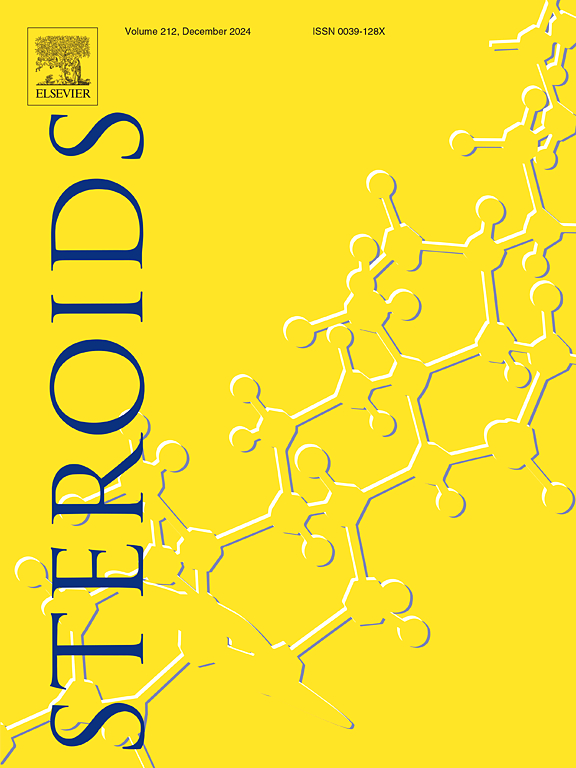从 phocaecholic acid 中实际合成 chenodeoxycholic acid。
IF 2.1
4区 医学
Q4 BIOCHEMISTRY & MOLECULAR BIOLOGY
引用次数: 0
摘要
在这项研究中,我们开发出了一种有效的方法,用于大规模合成由幽胆酸(PhCA)制备的酚去氧胆酸(CDCA)。通过甲酯化、Ts-保护、溴化、还原和水解等五个步骤,总产率高达 72%。1H NMR(核磁共振)、13C NMR、HRMS(高分辨率质谱)和 IR(红外光谱)光谱证实了中间体的结构。这种方法为合成 CDCA 提供了一种新的实用方法。本文章由计算机程序翻译,如有差异,请以英文原文为准。

Practical synthesis of chenodeoxycholic acid from phocaecholic acid
In this study, we developed an effective method for the large-scale synthesis of chenodeoxycholic acid (CDCA) from phocaecholic acid (PhCA). A high total yield of up to 72 % was obtained via five steps including methyl esterification, Ts-protection, bromination, reduction, and hydrolysis. The structures of the intermediates were confirmed by 1H NMR (Nuclear Magnetic Resonance), 13C NMR, HRMS (High Resolution Mass Spectrometry), and IR (Infrared Spectroscopy) spectroscopies. This method offers a new and practical approach to the synthesizing of CDCA.
求助全文
通过发布文献求助,成功后即可免费获取论文全文。
去求助
来源期刊

Steroids
医学-内分泌学与代谢
CiteScore
5.10
自引率
3.70%
发文量
120
审稿时长
73 days
期刊介绍:
STEROIDS is an international research journal devoted to studies on all chemical and biological aspects of steroidal moieties. The journal focuses on both experimental and theoretical studies on the biology, chemistry, biosynthesis, metabolism, molecular biology, physiology and pharmacology of steroids and other molecules that target or regulate steroid receptors. Manuscripts presenting clinical research related to steroids, steroid drug development, comparative endocrinology of steroid hormones, investigations on the mechanism of steroid action and steroid chemistry are all appropriate for submission for peer review. STEROIDS publishes both original research and timely reviews. For details concerning the preparation of manuscripts see Instructions to Authors, which is published in each issue of the journal.
 求助内容:
求助内容: 应助结果提醒方式:
应助结果提醒方式:


